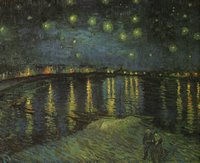Nights of the week
 My sister suggested that the nights of the week should be known as Monnight, Tuesnight, Wednesnight, Thursnight, Frinight, Saturnight, and Sunnight. I couldn't think of a reason why not, so I'm going to try using them.
My sister suggested that the nights of the week should be known as Monnight, Tuesnight, Wednesnight, Thursnight, Frinight, Saturnight, and Sunnight. I couldn't think of a reason why not, so I'm going to try using them.It's also somewhat interesting where the days of the week get their names in the first place. Shamelessly cribbed from wikipedia:
- Monday: It gets its name from Mani (Old English Mona), the Germanic Moon god.
- Tuesday: The English and Scandinavian names are derived from the Nordic god Tyr.
- Wednesday: The name comes from the Old English Wodnesdæg meaning the day of the Germanic god Woden.
- Thursday: The name Thursday comes from the Old English Þunresdæg, meaning the day of Þunor, commonly known in Modern English as Thor, the Norse god of thunder.
- Friday: The name Friday comes from the Old English frigedæg, meaning the day of Frige, the Norse god of beauty.
- Saturday: It is the only day of the week to retain its Roman origin in English, named after the Roman god of time Saturn.
- Sunday: In English, Sunday gets its name from Sunna, or Sunne the Germanic sun goddess.
Tags: vocabulary, words, english, night, days of the week, nights of the week


6 Comments:
the references to the gods are much better in romance languages, since they they still reference the roman gods. germanic languages of course tried to find the closest approximate, though they're not exact. (freya is hardcore, and venus is not.) it's interesting that saturday still retains the roman god, when german (samstag) uses the sabbath, like spanish and french, yet dutch (zterdag) doesn't. frisian also doesn't (sneon used to be saterdei, but it's been reduced. it's also interesting that dutch (woensdag) and frisian (woansdei) both retain the woden-root, yet german (mittwoch) changed to a pragmatic look at hump day. maybe it has something to do with palatlized g's?
I had major problems remembering the days of the week when I took Spanish in junior high. If I had known that they were related to Roman gods, I might have been able to correlate them back to the Norse gods, and might have remembered the vocabulary.
But your response just shows how much of a linguistic amateur I am: I'm thirty-something years old, and until today, I believe I never had even heard of Frisian.
it's sad that it took you that long to learn about english's closest germanic relative. as far as north sea germanic languages go, it's one of the most fun.
Cool link; I'll have to check it ou.
What's even worse than never hearing about Frisian: I took German in high school, where it seems like they should have mentioned it.
Just out of curiosity, would other visitors to the page please comment on their knowledge or ignorance of the Frisian language. Thanks!
I know way, way more about it than I ever would have thought possible.
and that's still not as much as you should know. i've done a horrible job.
Post a Comment
<< Home